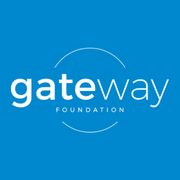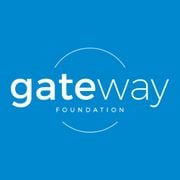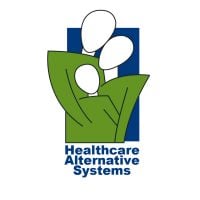Harbor Light Alcoholism and Drug Dependence Services
Drug Rehab Center in Chicago, Illinois
Harbor Light Alcoholism and Drug Dependence Services in Chicago, IL provides comprehensive treatment for addiction and substance abuse, including residential, outpatient, detox, and aftercare support programs.
About This Chicago, IL Facility
Salvation Army – Harbor Light Center, located in Chicago, Illinois, is a free drug and alcohol rehab facility offering inpatient and outpatient treatment options, as well as transitional career services. With a focus on supporting individuals to overcome addiction and better their lives, the center aims to help clients successfully return to the community.
• Intensive inpatient treatment: The intensive rehabilitation unit (IRU) provides residential addiction treatment for 20 men who have completed detox, preparing them for sober independent living.
• Intensive outpatient treatment: The intensive outpatient program (IOP) is designed for men and women who have completed inpatient treatment but still require long-term care, offering group services, educational sessions, and support groups.
• Adolescent substance abuse treatment: A specialized program for teens aged 13-27 utilizes evidence-based support tailored to their emotional and developmental needs, with a trauma-informed treatment team addressing their physical, mental, and spiritual well-being.
Accredited by the Commission on Accreditation of Rehabilitation Facilities (CARF), Salvation Army – Harbor Light Center ensures the highest quality of care and treatment for individuals seeking help with opioid addiction, substance abuse, drug addiction, alcoholism, and dual diagnosis.
The facility treats a range of addictions and co-occurring mental health disorders, offering comprehensive levels of care, including detoxification, residential, inpatient, outpatient, and intensive outpatient programs. Aftercare support and sober-living/half-way programs are also available to ensure long-term recovery and success.
Genders
Ages
Modality
Additional
Accreditations

CARF
The Commission on Accreditation of Rehabilitation Facilities (CARF) is a non-profit organization that specifically accredits rehab organizations. Founded in 1966, CARF's, mission is to help service providers like rehab facilities maintain high standards of care.
Conditions and Issues Treated
Rehab centers exist in Chicago, IL to help individuals bounce back from substance abuse, which is an umbrella term for drug and alcohol addiction. Drug addiction refers to the use of illegal drugs and improper use of prescription drugs. Centers like Harbor Light Alcoholism and Drug Dependence Services provide individuals a chance to access individual and group therapy that can be monumental for recovery.
Substance abuse includes all problems that stem out from using various psychoactive substances. It is also a diagnostic term used by Diagnostic and Statistical Manual of Mental Disorders (DSM-IV) to define the mental and physical impairment or distress caused by misuse and overuse of certain substances in a period of 12 months.
Opioid addiction involves addiction to legal or illegal opioids. It may happen very quickly with any opioid use. Sometimes within a matter of days. Opioid addiction is a known as a high-risk factor for future heroin addiction.
Opioid withdrawal can be extremely uncomfortable and lead the user to continue to use even if they want to quit. Stopping using an opioid requires careful medical observation. Sometimes the withdrawal can persist for many weeks, which can put the user at a high risk for relapse.
It is recommended to receive inpatient treatment and a medically supervised detox like those offered at Harbor Light Alcoholism and Drug Dependence Services in Chicago, IL, IL, to manage the withdrawal process while learning lasting tools to maintain recovery. In some circumstances medications can be used to manage opioid addiction.
Levels of Care Offered
This center offers a variety of custom treatment tailored to individual recovery. Currently available are Aftercare Support, Drug Rehab, Inpatient, Intensive Outpatient, Outpatient, Residential, Sober-Living / Half-Way, with additional therapies available as listed below.
Inpatient rehab is intended to treat severe addictions and co-occurring disorders. The length of stay in Illinois varies from four weeks to six months according to the individual needs. Inpatient rehab ensures that the patient stays in a substance-free environment at Harbor Light Alcoholism and Drug Dependence Services.
Intensive outpatient programs mostly conduct meetings on weekdays. Group therapy is the main element in most intensive outpatient programs. Most IOPs last for about 90 days and include drug use monitoring and testing. A Illinois IOP, like what’s offerd at Harbor Light Alcoholism and Drug Dependence Services, take much more time than a standard outpatient program. Some programs offer other services as well, such as employment assistance and medication management.
Outpatient treatment can be considered the lowest intensity level of addiction treatment in Chicago, IL. It is ideal for early phase addiction or lower intensity addictions. Harbor Light Alcoholism and Drug Dependence Services peer group support, 12-step programs, and individual counseling may still be involved.
Sober living home provides a drug and alcohol-free environment for people in Chicago trying to stay sober. The atmosphere in SLH is less restrictive than in inpatient rehab. Members have to follow many rules, including not drinking and using drugs and paying rent and bills. There is no limit for the minimum or maximum period of stay, but as long as you stay in the house, you should follow the rules, as it’s the opportunity for individual and group sobriety.
Residential treatment programs are those that offer housing and meals in addition to substance abuse treatment. Rehab facilities that offer residential treatment allow patients to focus solely on recovery, in an environment totally separate from their lives. Some rehab centers specialize in short-term residential treatment (a few days to a week or two), while others solely provide treatment on a long-term basis (several weeks to months). Some offer both, and tailor treatment to the patient’s individual requirements.
After treatment, addiction treatment can be frightening for newly sober people. Aftercare support provided by Harbor Light Alcoholism and Drug Dependence Services is designed to give resources and help on a continued basis. It can involve finding housing in and around Illinois, setting up 12-step meeting groups, continued medical monitoring, and counseling.
Harbor Light Alcoholism and Drug Dependence Services‘s Therapies & Programs
Couples therapy is an approach wherein the patients and their partners are engaged together as a part of the treatment process. When a person becomes a victim of substance abuse, it affects the patient and the people around him, particularly his partner. Their relationship can become strained due to lack of communication, financial issues, loss of trust, lack of intimacy, and physical abuse in more severe cases.
Couples therapy addresses these issues and tries to rebuild the trust between the partners. The partner’s involvement in the process will result in greater chances of treatment success and sustained recovery.
Family therapy is a set of therapeutic approaches that assumes that the entire family is a system. It utilizes the strengths and resources of the family to help the patient refrain from resorting to substance abuse. It helps to repair relationships and improve communication between family members.
Group therapy happens at Harbor Light Alcoholism and Drug Dependence Services in a controlled group environment, as opposed to a one-on-one setting. It supports Chicago, IL patients’ recovery by offering a sense of comfort and letting them know that they are not alone. Through shared conversations, patients also learn to develop faith and understanding and gain insight on their addictions.
Unresolved trauma is often a key reason why many patients resorted to substance abuse. Trauma therapy refers to treatment wherein specialist therapists help the patients to resolve the trauma that led the patients to substance abuse. The trauma could be physical abuse, sexual abuse, war, natural disasters, divorce, accident, loss of a loved one, etc. Thinking of these traumatic events causes emotional disturbances like anxiety, depression and results in addiction. If trauma is the primary cause of substance abuse, then both issues must be addressed. Otherwise, there is a risk of relapse. Trauma therapy also improves the cognitive functions and provides long term benefits.
Dialectical Behavior Therapy (DBT) is an improved version of Cognitive Behavioral Therapy (CBT). DBT is a treatment of choice for people suffering from self-harming behaviors characterized by cutting and suicidal thoughts or inclinations.
This treatment is developed to help individuals recognize their thought patterns, behaviors, and feelings. It has demonstrated its effectiveness for people that are finding it difficult to control their emotions and urges. Conditions such as obsessive-compulsive disorder and borderline personality disorder also benefit from DBT as it imparts individuals stress-management techniques and enhanced self-esteem so they can sustain their sobriety by reducing the impact of triggers and out-of-control emotions.
Cognitive behavioral therapy (CBT) is a way of addressing concerns through talking. It can be used in individual counseling sessions. Talking through issues with professionals at Harbor Light Alcoholism and Drug Dependence Services can identify sources of discomfort or unhealthy thoughts. It is a way of learning about yourself and your individual perceptions. CBT is a healthy way of addressing some behaviors which may be bringing unintended consequences in your life.
Contingency management is a way to help motivate someone to remain substance free. It is a process of rewarding positive choices and good outcomes. As humans we are wired to recreate experiences that lead to positive feelings. Through this method incentives are used for completing positive steps towards a sober life. This may be a reward for attending meetings, remaining sober or for employment goals.
Payment Options Accepted
For specific insurance or payment methods please contact us.
Is your insurance accepted?
Ask an expert, call (888) 674-0062
Additional Details
Specifics, location, and helpful extra information.
Chicago, Illinois 60651 Phone Number(312) 667-2200 Meta DetailsUpdated April 15, 2024
Staff Verified
Patient Reviews
There are no reviews yet. Be the first one to write one.
Chicago, Illinois Addiction Information
In 2016, more than 2,350 Illinoisans died from drug overdoses. More than 5,500 deaths annually occur in Illinois due to the abuse of alcohol and other drugs. 7.17% of Illinois residents reported using illicit drugs in the past month (2018). Substance abuse costs the state approximately $3.5 billion every year.
Drug misuse can lead to other serious health problems, including HIV/AIDS or hepatitis C infection and liver disease. Chicago's main drugs of abuse include heroin, cocaine, and methamphetamine. Field sobriety tests can be used to determine if someone is driving under the influence of drugs or alcohol. There are about 872 drug treatment centers in the city, and the number of people seeking help for addiction continues to rise.
Treatment in Nearby Cities
- Berwyn, IL (5.4 mi.)
- Salem, IL (235.3 mi.)
- Watseka, IL (77.5 mi.)
- Sparta, IL ( mi.)
- Carpentersville, IL (32.2 mi.)
Centers near Harbor Light Alcoholism and Drug Dependence Services
The facility name, logo and brand are the property and registered trademarks of Harbor Light Alcoholism and Drug Dependence Services, and are being used for identification and informational purposes only. Use of these names, logos and brands shall not imply endorsement. RehabNow.org is not affiliated with or sponsored by Harbor Light Alcoholism and Drug Dependence Services.





